Why Dark Souls has been crowned the best video game of all time
GamesRadar readers and Golden Joystick Awards viewers crown Dark Souls as the GOAT
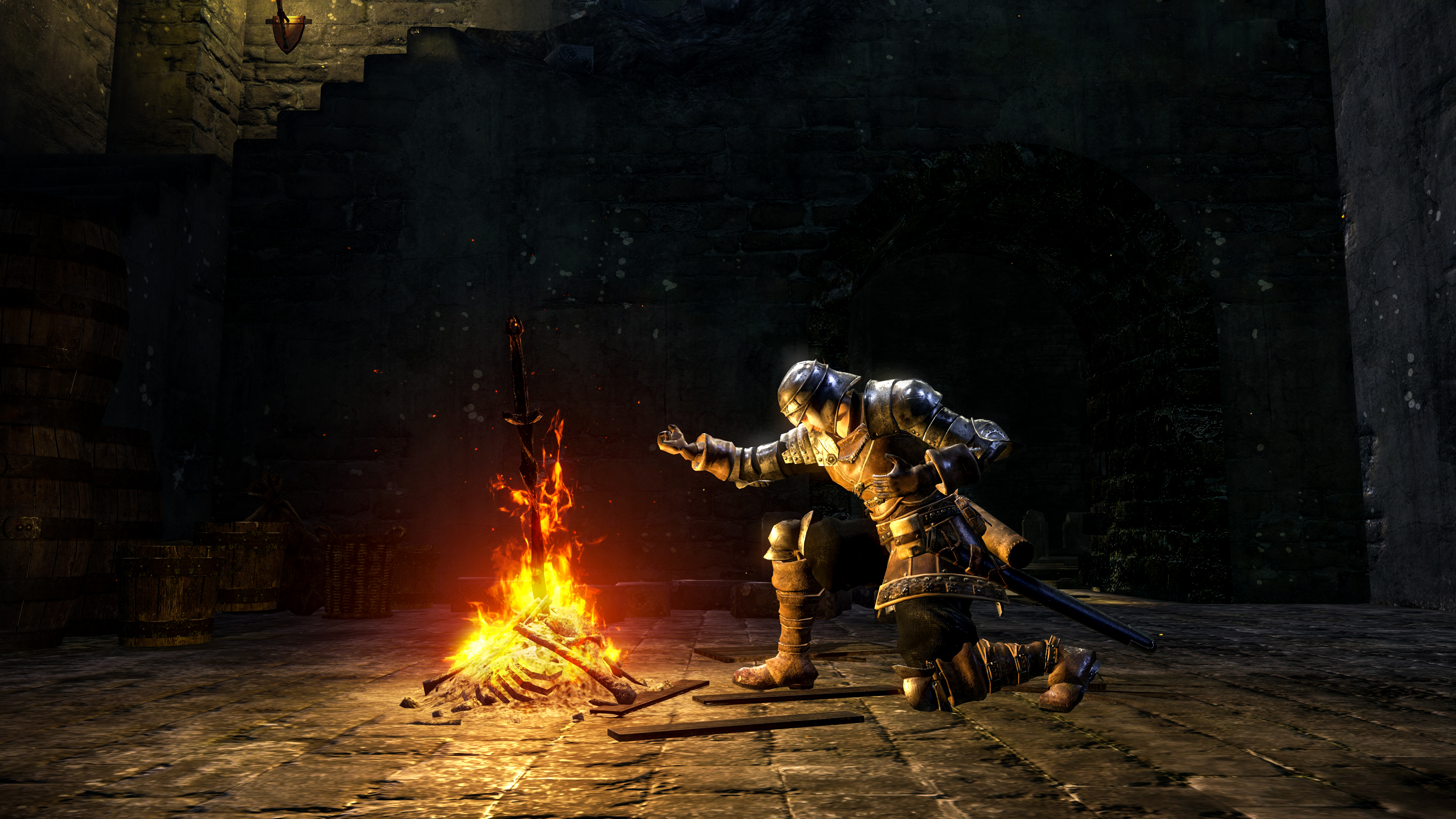
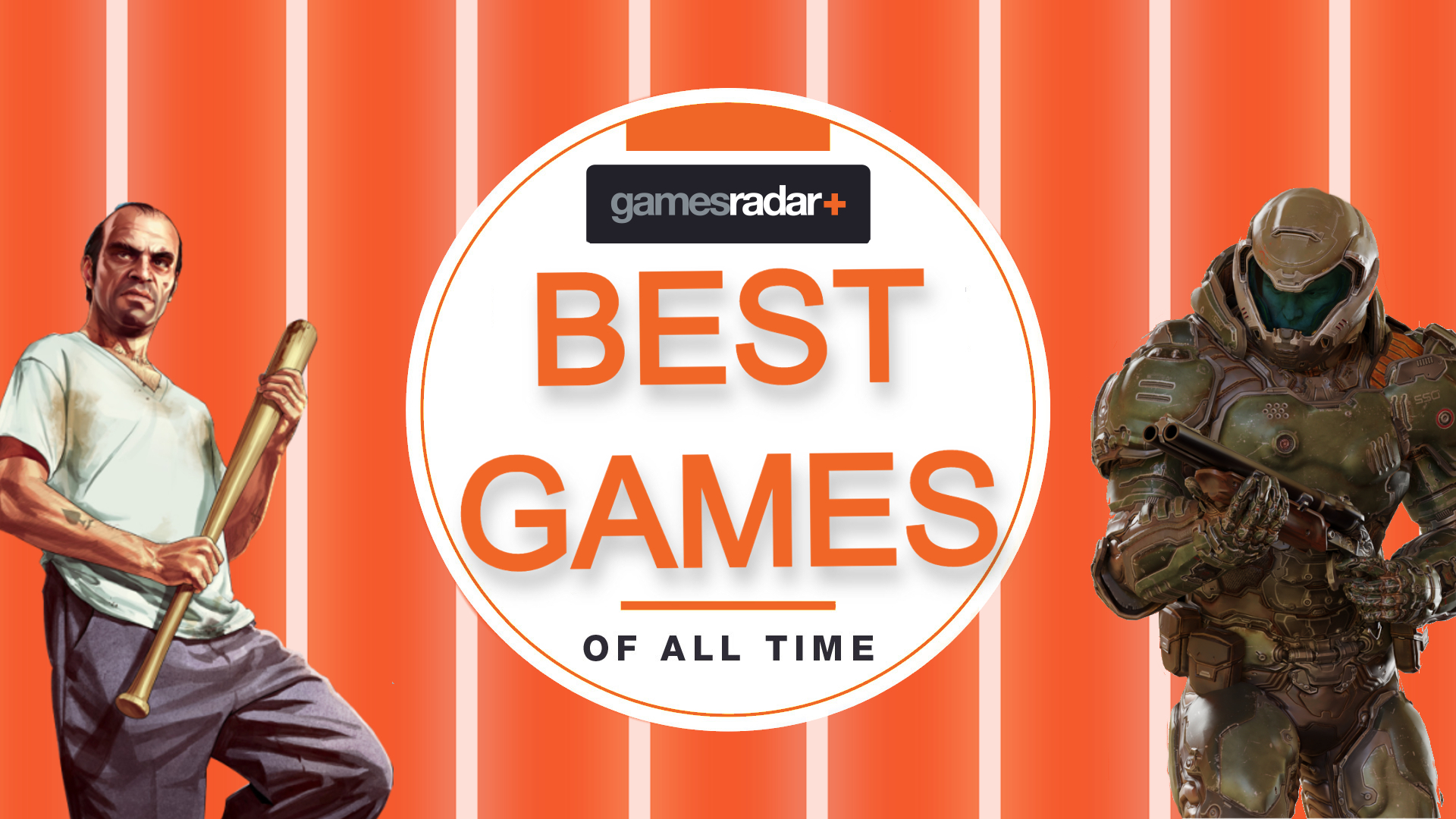
Dark Souls was voted the best game of all time by the GamesRadar readers and viewers of the Golden Joystick Awards. To read the full list, check out our ranking of the 50 best games of all time.
So you've finally beaten the Dark Souls Gargoyles. You've skipped over the church's slate roof, climbed the rusted ladder and have rung the first Bell of Awakening. Well done you. But don't get too comfortable, because less than an hour from now you'll be waist-deep in poisonous sludge, trudging towards Quelaag's underground lair, running the gamut between bonfire and boss fight for the umpteenth time, and wondering what you ever did in this life – in-game and/or reality – to deserve Blighttown.
I see you've now toppled the Chaos Witch, and have rung that second bell. Access to Sen's Fortress is your reward, by the way – bladed pendulums, lightning-hurling lizardmen, boulder-heaving giants and all – atop which you'll fight the towering Iron Golem. Yes, he is definitely as terrifying as he sounds. After that, you'll graduate to Anor Londo, face some of Lordran's toughest enemies before a showdown with its most gruelling boss duo. And despite your plight to this point, you're only halfway through the game. Catch your breath while you can, Chosen Undead. Because Dark Souls is relentless.
Bossing it
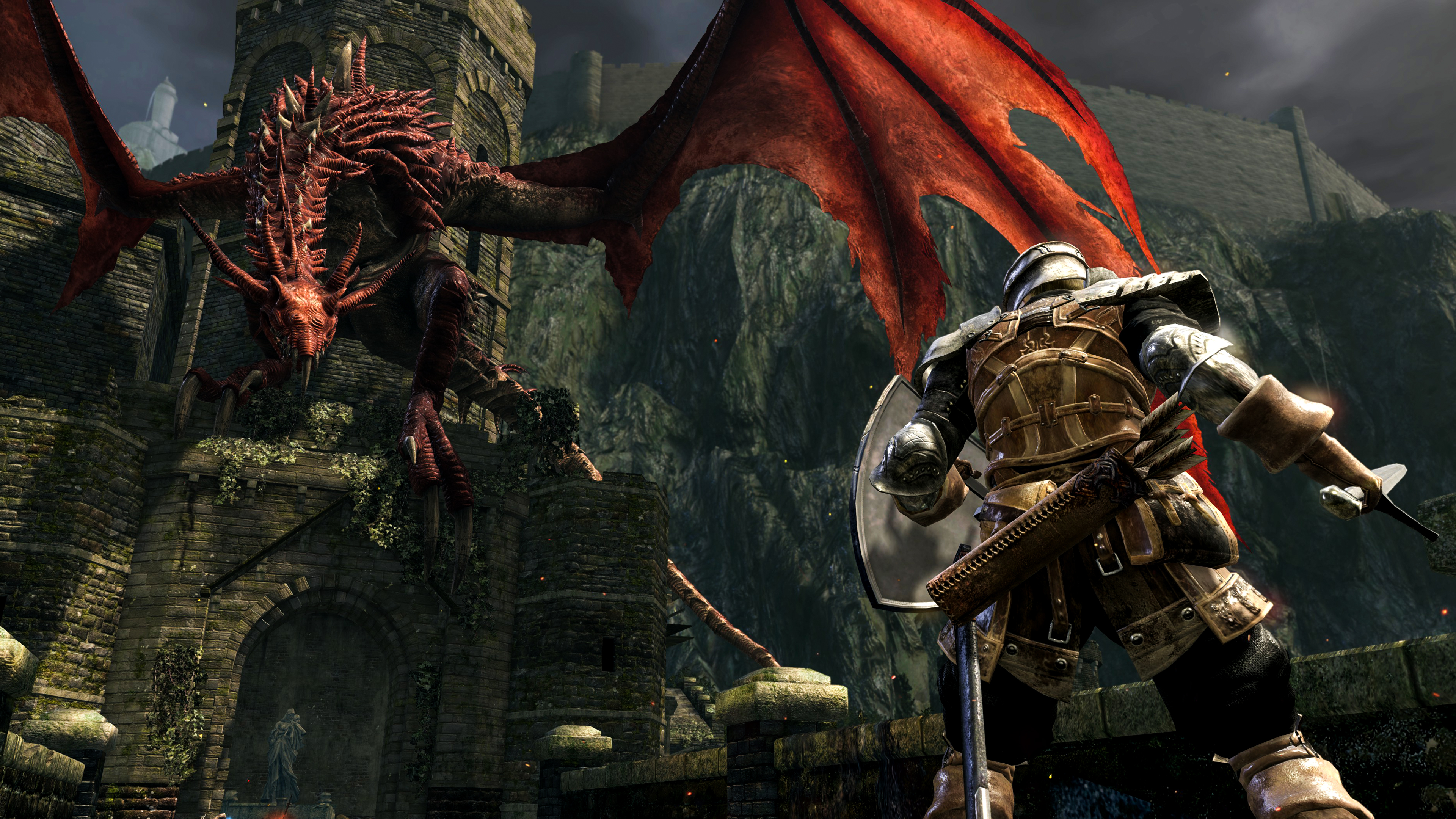
"Its meticulous blueprint weaves from its highest peaks to its lowest troughs with effortless continuity, whereby curious exploration can be as vital to success in this twisted world as being handy with a sword."
Unless you've been hiding out in The Catacombs for the last 10 years, you'll know that Dark Souls is a challenging video game. How familiar you are with the game itself will likely determine just how difficult you view it, but there's no escaping FromSoftware's 2011 action-RPG, the spiritual successor to Demon's Souls two years before it, can be hard as nails. So much so, that for many outsiders, its challenge defines it.
Souls fans, of course, disagree. Sure, Dark Souls can be punishing, but it's rarely unfair. Death, of which there is a lot, is more often the result of your own failings – be that a mistimed parry, a poorly-executed offensive advance, or simply wandering into an area filled with overpowered enemies before you're supposed to. Which is to say: you're often your own worst enemy within the bounds of Lordran, just as much as its hordes of hostile Hollows and formidable boss demons. Claiming the scalp of one of those iconic bosses – seeing it vanish in a blaze of white light before you, watching the words VICTORY ACHIEVED flash across your screen – is in turn euphoric, and enough to invite any doubters into the inner sanctum of fervent Souls worship because, well, beating bastard-hard baddies is addictive.
And yet while Dark Souls' boss battles are harrowing and unforgettable affairs in combat and aesthetic terms – from the greataxe-wielding Taurus Demon, to the energy spear-hurling Moonlight Butterfly, the poison-vomiting Gaping Dragon, and the lava-spewing Ceaseless Discharge to name but a few of its monstrous antagonists – their positioning within the game's world is another masterstroke; each tied to lore, narrative, and their race's place within this universe's second Age of Fire. In fact, for many Souls fans, the sprawling, interconnected world of Lordran is itself the star of the Dark Souls show.
Praise the Lordran
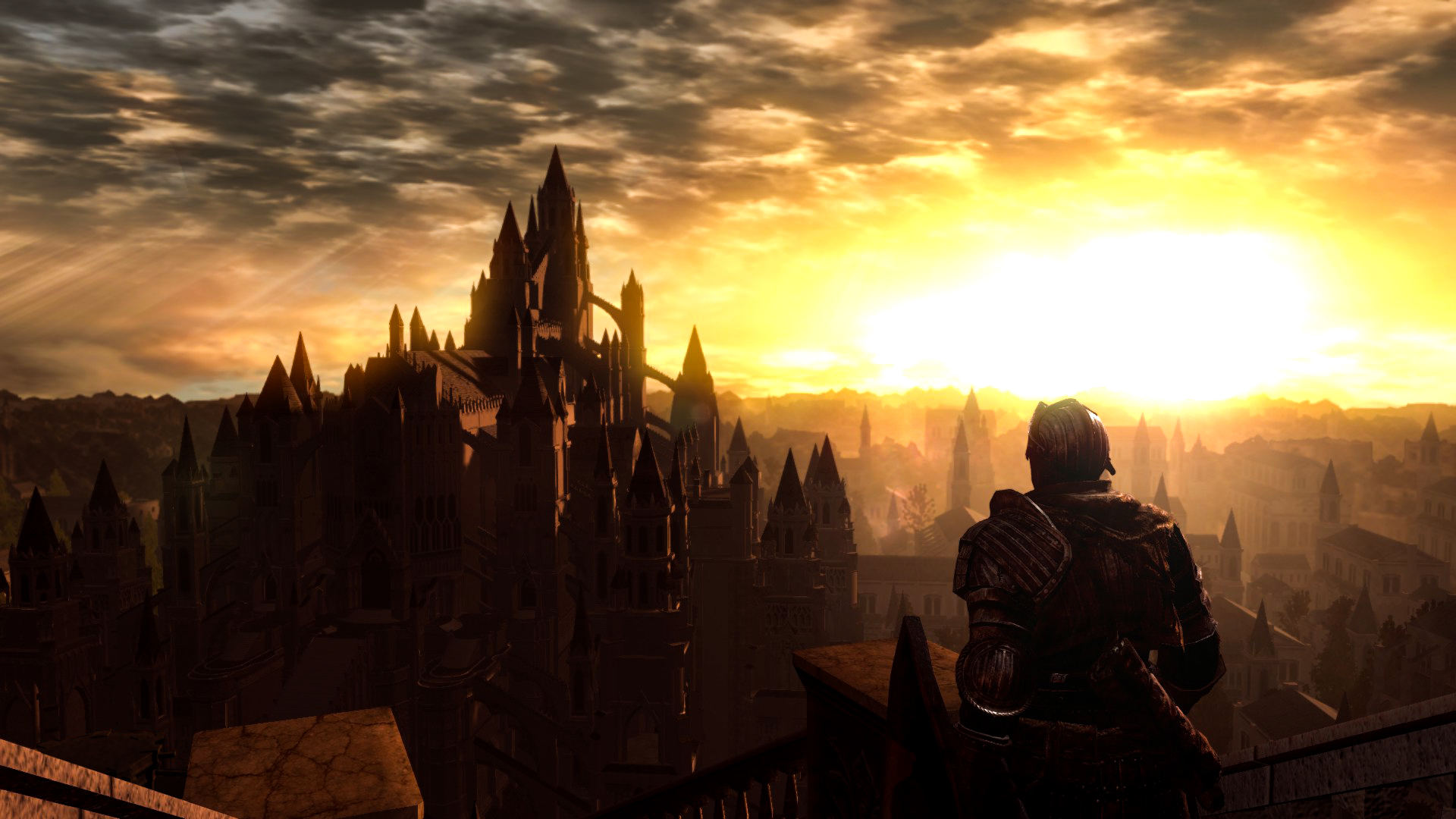
For many players, it's the credibility and believability of Dark Souls' Lordran that stands it apart from any other video game setting. Which is some going, given the fact it houses dragons, giant crows and seven-headed hydra, among countless other mythical creatures. Still, its meticulous blueprint weaves from its highest peaks to its lowest troughs with effortless continuity, whereby curious exploration can be as vital to success in this twisted world as being handy with a sword. Traversing Lordran sans fast travel – a feature only unlocked towards the game's end – is a total joy, so rich and charismatic are its environments, and the satisfaction gleaned from uncovering a shortcut that links that area to this one is second to none – a process which makes the world feel lived in; a world which would, could and does persist whether you're around to see it or not.
Add this to the fact that Dark Souls is so very light in vocal storytelling, and its setting becomes even more important. Besides its opening cutscene, and a sprinkling of enigmatic dialogue from equally mysterious NPCs scattered around the place, much of Dark Souls' loose narrative is told through item descriptions, item placement, and sheer speculation on the player's part, each of who is encouraged to join the dots and fill in the blanks as they go. When fighting the aforementioned Iron Golem, for example, players can summon AI-controlled character, Iron Knight Tarkus, as backup. Shortly after arriving in Anor Londo later on, however, Tarkus' armour and weapons can be found in a chest, in turn signalling the premature end of your one-time companion's adventure. With that, we're told that history repeats itself, and that looping time cycles preserve or break humanity. It's all very mysterious.
Weekly digests, tales from the communities you love, and more
Legacy serving
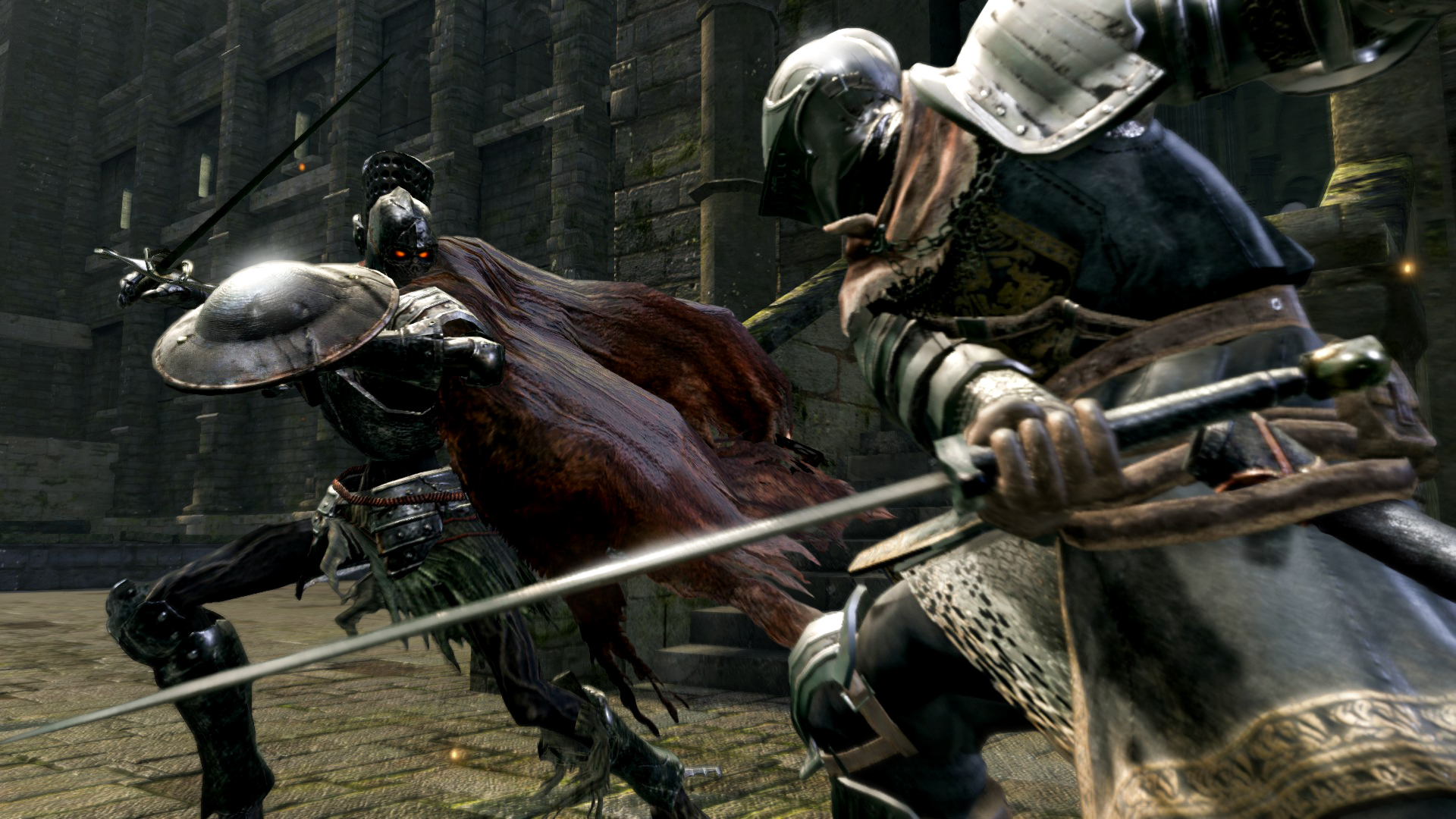
"As such, we'll be talking about Dark Souls in another 10 years, and another 10 years after that again. In Dark Souls, we're told that history repeats itself. But in reality, there will likely never be a game quite like it again."
Dark Souls is full of these subtle but poignant moments, wherein significant plot threads are tied up or severed entirely without ceremony, each of which underlines the game's core themes of death and despair. While other games might opt for convoluted cut-scenes to convey similarly emotive story junctures, Dark Souls leaves them to consequence and circumstance – in the above instance, Tarkus' discarded equipment can be missed entirely for players who don't happen upon his final resting place.
Against the tide of hand-holding, action hero-sporting, CGI-heavy video games that filled the market at the beginning of the last decade, then, Dark Souls stood apart. Journalists tasked with reviewing FromSoftware's seminal action-roleplayer will regale you today with tales of mass panic, hysteria and excitement, as, in the absence of guides and help threads pre-release, they frantically swapped tips behind the scenes on how to get past certain bosses and areas – all the while wondering how the hell they'd finish this impossibly cruel game before going to print.
They did, ultimately, and Dark Souls was received well critically – even if it failed to land with players on a broader basis at first. The Demon's Souls successor instead garnered cult-classic status from the off, before growing in stature over time, converting the non-believers one Taurus Demon-slaying at a time. In 2014, Dark Souls 2's lovely but incongruous map design underlined the expert formation of the original's, while 2015's more action-leaning, PlayStation-exclusive Bloodborne acted as a new jumping-on point for FromSoftware games – latterly encouraging swathes of players to (re)visit Lordran retrospectively.
Dark Souls 3 cemented the 'Soulsborne' moniker in popular video game parlance by gathering the series' best features in one place, while 2019's Sekiro: Shadows Die Twice, and the upcoming Elden Ring, have offered scope for expanding the OG formula via new mechanics, such as aerial traversal and stealth. And that's not even mentioning the scores and scores of Souls-like games – now a genre unto itself – which have cropped up since, inspired by everything from Dark Souls' unique slant on permadeath, to its gruelling boss fights and hack-slash-and-roll mechanics. Player-made mod projects such as Nightfall act as playable love letters to the greatest game of all time, and a deferential nod to a classic that has inspired a generation.
As such, we'll be talking about Dark Souls in another 10 years, and another 10 years after that again. In Dark Souls, we're told that history repeats itself. But in reality, there will likely never be a game quite like it again.
Dark Souls developer FromSoftware is on the cusp of launching its next game – here's everything we know about Elden Ring.

Joe Donnelly is a sports editor from Glasgow and former features editor at GamesRadar+. A mental health advocate, Joe has written about video games and mental health for The Guardian, New Statesman, VICE, PC Gamer and many more, and believes the interactive nature of video games makes them uniquely placed to educate and inform. His book Checkpoint considers the complex intersections of video games and mental health, and was shortlisted for Scotland's National Book of the Year for non-fiction in 2021. As familiar with the streets of Los Santos as he is the west of Scotland, Joe can often be found living his best and worst lives in GTA Online and its PC role-playing scene.


